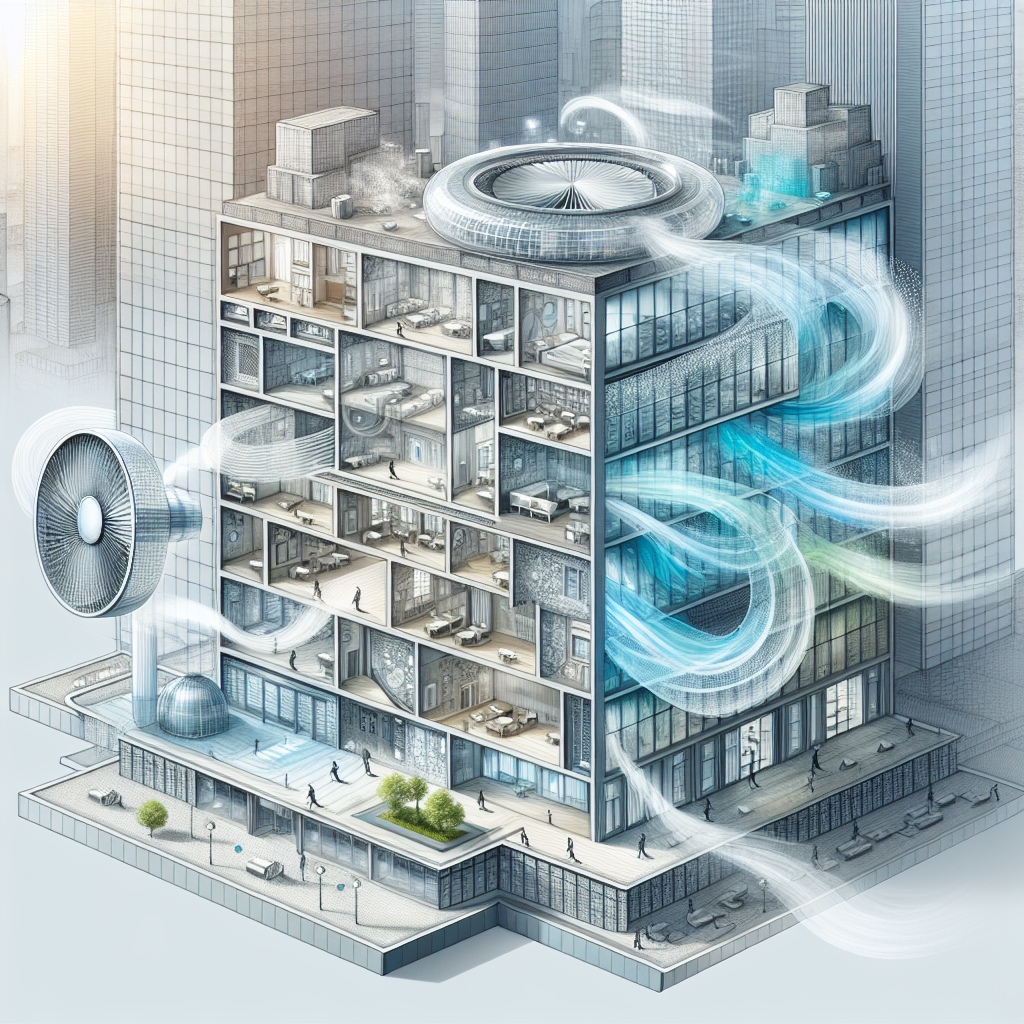Your cart is currently empty!
The Importance of Proper Ventilation in Buildings

Proper ventilation in buildings is crucial for maintaining a healthy and comfortable indoor environment. It plays a key role in ensuring that occupants are provided with clean, fresh air, and that pollutants and contaminants are removed from the indoor space. Without adequate ventilation, buildings can become stale, stuffy, and potentially hazardous to the health of those inside.
One of the main reasons why proper ventilation is important is that it helps to remove indoor air pollutants. These pollutants can come from a variety of sources, including cleaning products, paints, furniture, and even people themselves. Without proper ventilation, these pollutants can build up in the air, leading to poor indoor air quality and potential health problems for building occupants.
In addition to removing pollutants, proper ventilation also helps to control humidity levels in buildings. High levels of humidity can lead to mold growth, which can cause respiratory issues and other health problems. By providing adequate ventilation, excess moisture can be removed from the indoor space, helping to prevent mold and maintain a comfortable environment for occupants.
Proper ventilation is also important for controlling the temperature in buildings. Inadequate ventilation can lead to overheating in the summer and cold spots in the winter, making it difficult for occupants to maintain a comfortable temperature. By providing proper ventilation, buildings can ensure that air is circulated effectively, helping to regulate temperature and create a more comfortable indoor environment.
In addition to the health and comfort benefits, proper ventilation can also help to improve energy efficiency in buildings. By providing adequate ventilation, buildings can reduce the need for mechanical heating and cooling systems, which can help to lower energy costs and reduce carbon emissions. Proper ventilation can also help to extend the life of building materials and furnishings, as well as improve overall indoor air quality.
In conclusion, proper ventilation is essential for maintaining a healthy, comfortable, and energy-efficient indoor environment. By ensuring that buildings are properly ventilated, occupants can enjoy clean, fresh air, while also reducing the risk of indoor air pollutants, mold growth, and temperature fluctuations. Investing in proper ventilation systems is a wise choice for building owners and occupants alike, as it can lead to improved health, comfort, and overall building performance.

Leave a Reply